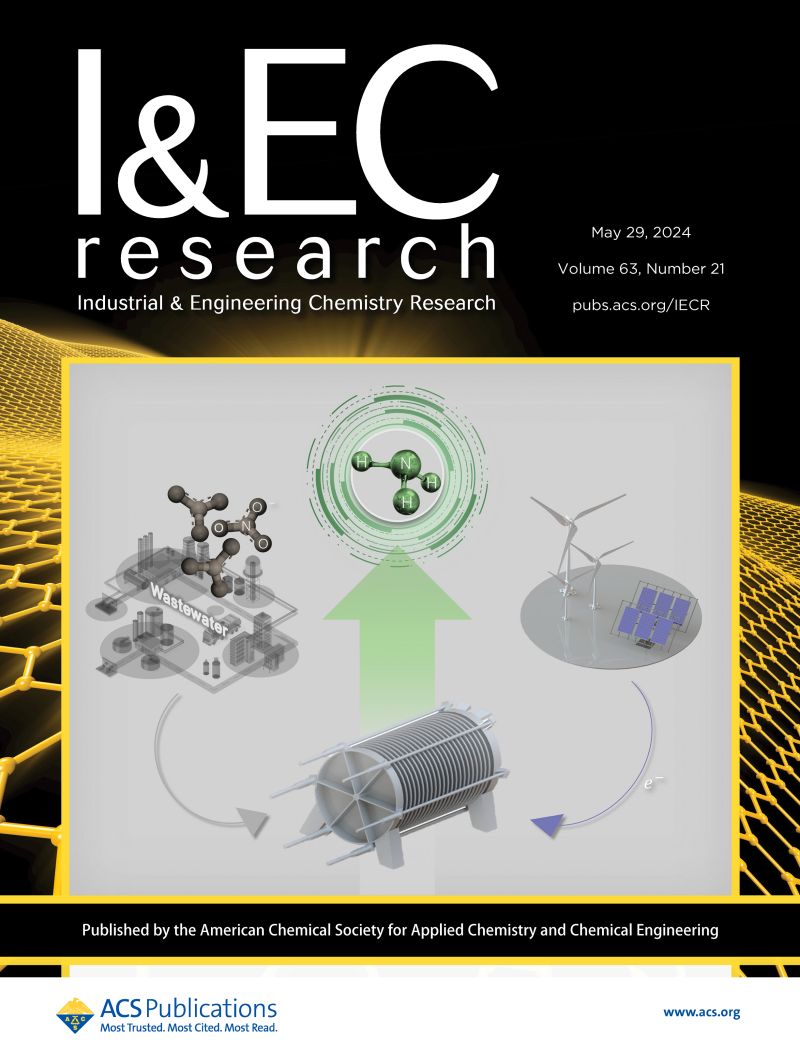基于贝叶斯优化的钌非对称加氢和选择性脱卤配合物研究
IF 3.9
3区 工程技术
Q2 ENGINEERING, CHEMICAL
引用次数: 0
摘要
在这项研究中,我们报告了钌配合物的发现,使酮的有效不对称氢化(AH)和选择性脱卤。利用贝叶斯优化辅助的多参数筛选,我们确定了钌催化剂表现出不同的温度依赖行为。在129°C以下,这些催化剂可实现芳基酮卤化物的AH,转化率高达99%,对映体过量(ee)达99%,而无需加氢卤化。在这个温度以上,催化剂分解产生一种钌,这种钌可以选择性地促进乙醇作为氢供体的无碱脱卤,收率高达95%。与钯、镍或铑等金属催化的传统氢卤化反应不同,这种方法避免了对强碱和氢的需要。利用这些不同的催化活性,以60%的收率和94%的ee合成了氯拉替尼的关键中间体手性氟碘苄基醇2C,并以64%的收率选择性地脱氯了吡格列净中间体。这项工作突出了钌配合物在可持续和选择性催化方面的潜力。本文章由计算机程序翻译,如有差异,请以英文原文为准。

Ruthenium Complexes for Asymmetric Hydrogenation and Selective Dehalogenation Revealed via Bayesian Optimization
In this study, we report the discovery of ruthenium complexes that enable efficient asymmetric hydrogenation (AH) of ketones and selective dehalogenation. Using Bayesian optimization-assisted multiparameter screening, we identified ruthenium catalysts exhibiting distinct temperature-dependent behaviors. Below 129 °C, these catalysts achieve AH of aryl ketone halides with up to 99% conversion and >99% enantiomeric excess (ee), without hydrodehalogenation. Above this temperature, catalyst decomposition generates a ruthenium species that selectively promotes base-free dehalogenation using ethanol as a hydrogen donor, achieving yields up to 95%. Unlike conventional hydrodehalogenation catalyzed by metals such as Pd, Ni, or Rh, this method avoids the need for strong bases and hydrogen. These diverse catalytic activities were applied to synthesize the chiral fluoroiodobenzyl alcohol 2C, a key intermediate of Lorlatinib, in 60% yield with 94% ee, and to selectively dechlorinate an Ipragliflozin intermediate with a 64% yield. This work highlights the potential of ruthenium complexes for sustainable and selective catalysis.
求助全文
通过发布文献求助,成功后即可免费获取论文全文。
去求助
来源期刊

Industrial & Engineering Chemistry Research
工程技术-工程:化工
CiteScore
7.40
自引率
7.10%
发文量
1467
审稿时长
2.8 months
期刊介绍:
ndustrial & Engineering Chemistry, with variations in title and format, has been published since 1909 by the American Chemical Society. Industrial & Engineering Chemistry Research is a weekly publication that reports industrial and academic research in the broad fields of applied chemistry and chemical engineering with special focus on fundamentals, processes, and products.
 求助内容:
求助内容: 应助结果提醒方式:
应助结果提醒方式:


